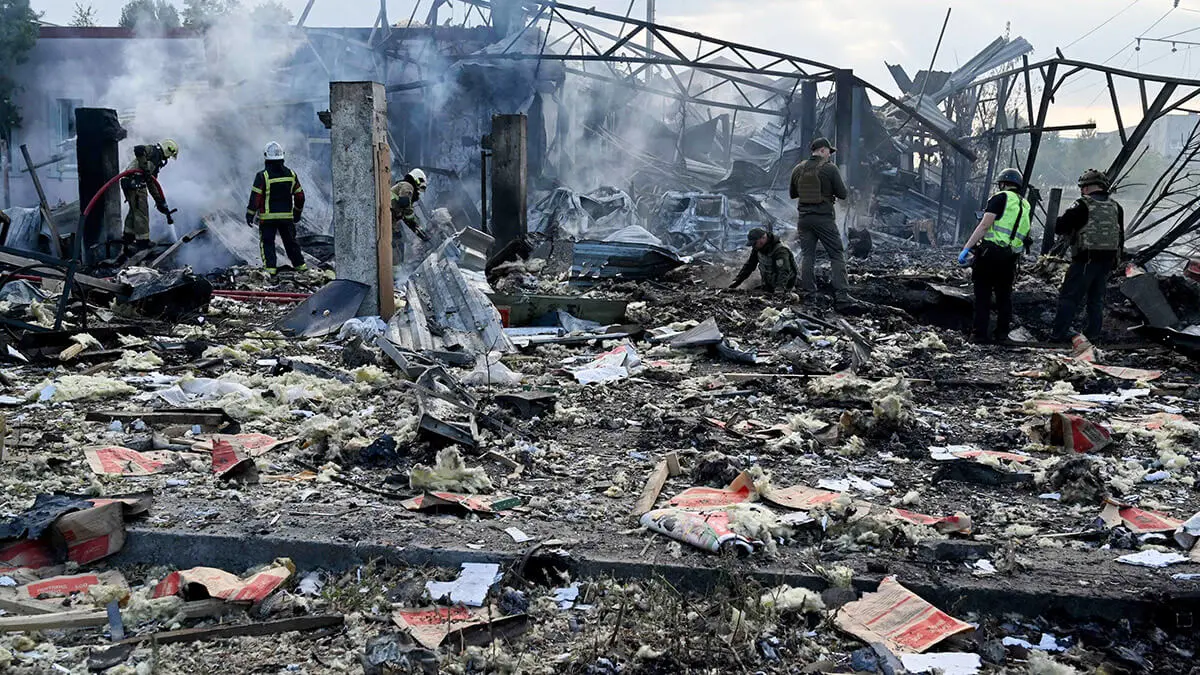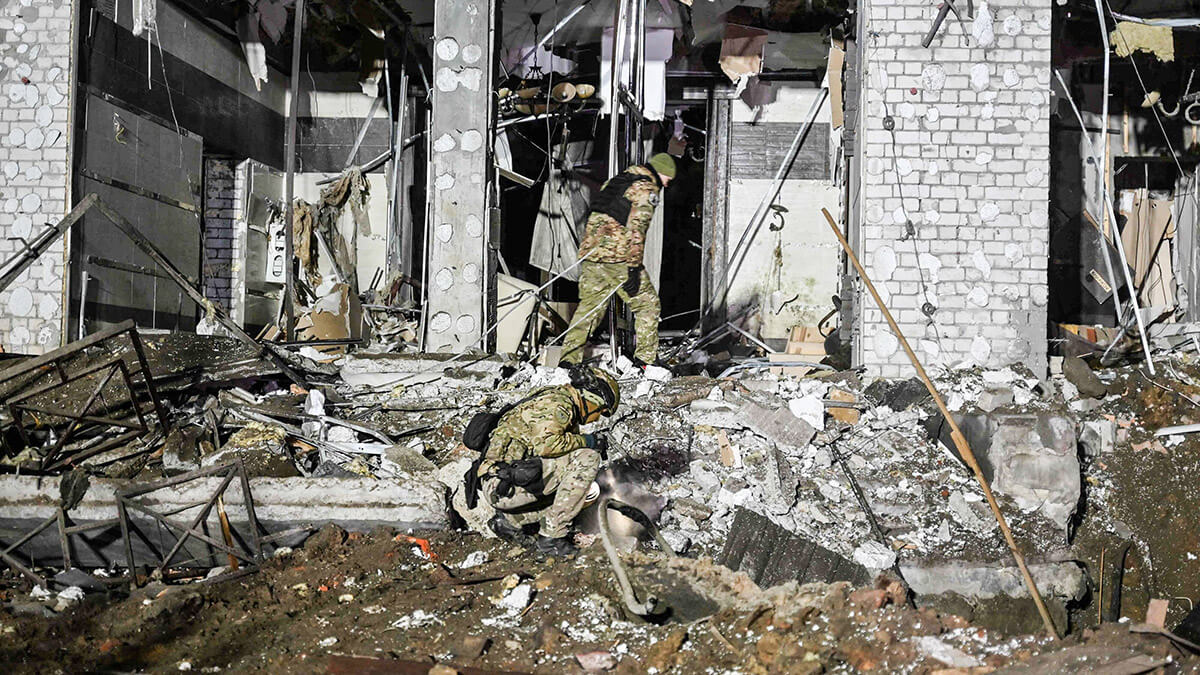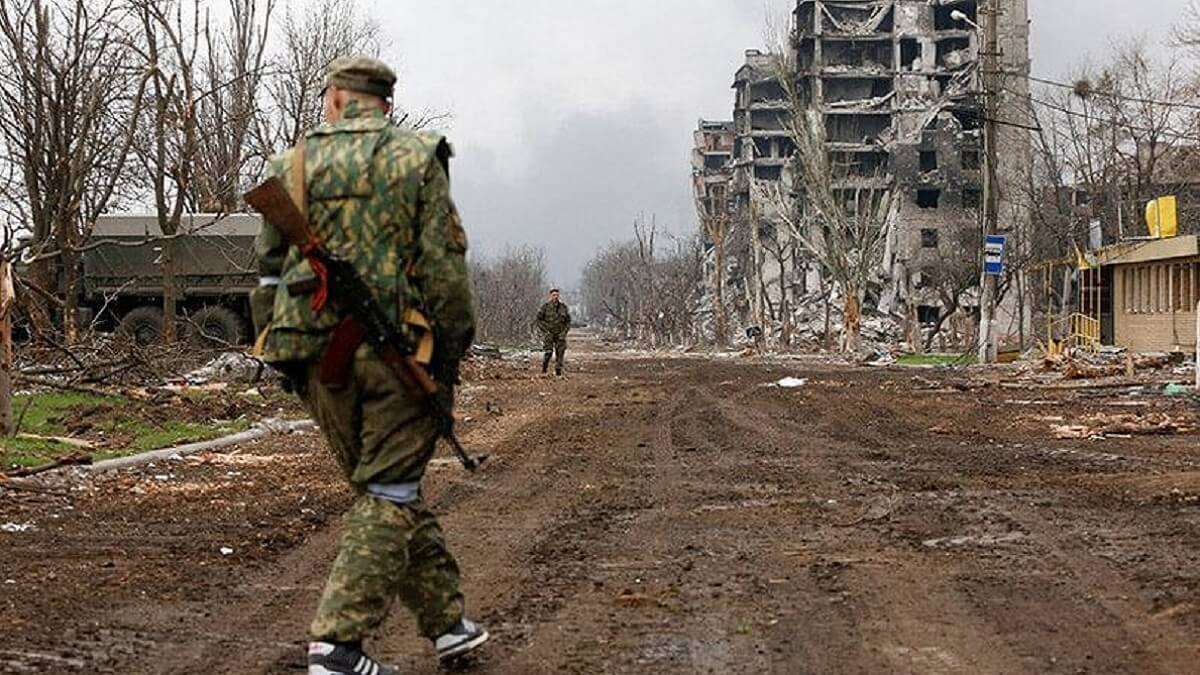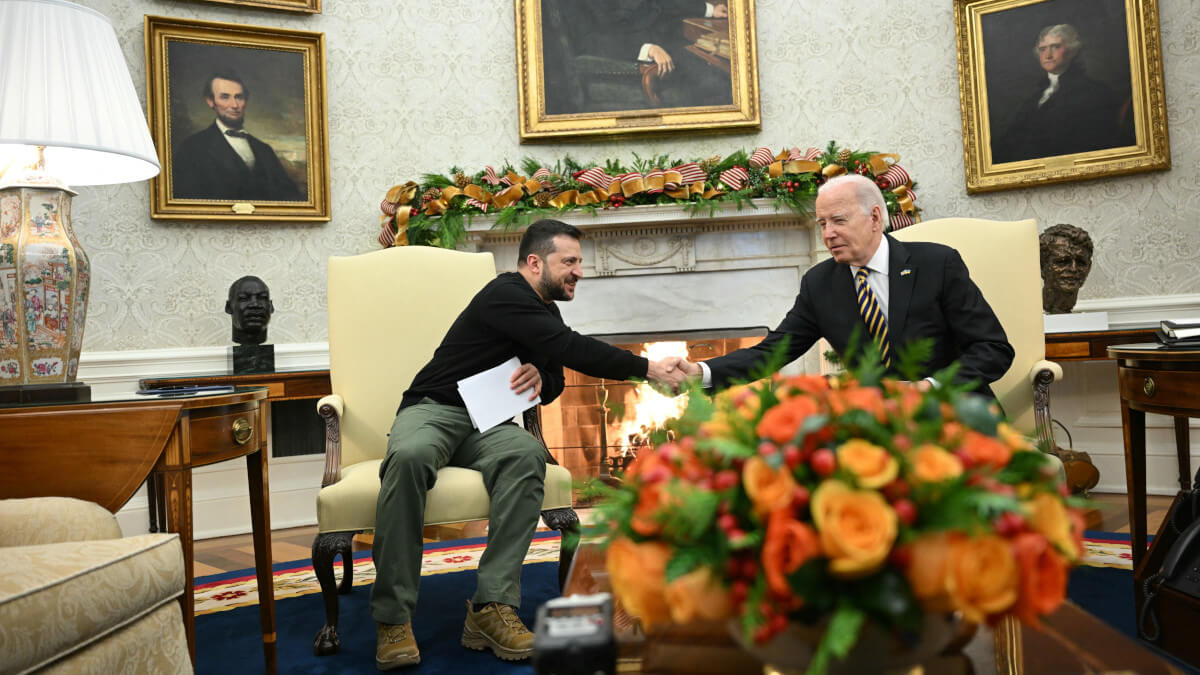Each year of war means 75,000 million euros for reconstruction in Ukraine

For yet another year, the Munich Security Conference focused its attention on the situation in Ukraine and its international repercussions. The President of Ukraine, Volodimir Zelensky, participated in Munich with the aim of preventing the economic and military aid from the United States and the EU (European Union) from being relaxed. This issue was discussed by journalist and correspondent María Senovilla on Onda Madrid's "De cara al mundo" programme.
In Munich, special attention was paid to the information revealed by a congressman's question to the Washington government about Russia's development of a nuclear weapons system to be installed in space with the aim of destroying Western satellites.
Moscow responds that it is a strategy to overcome the Republican veto of the aid package for Ukraine, all in anticipation of Donald Trump's return to the White House. Meanwhile, Adviidka may be on the verge of collapse: troops have already entered the city and there is urban fighting.
Several districts have already seen such fighting, and both the Ukrainian 3rd Ukrainian Assault Brigade and the 110th Brigade, which have done a magnificent job in defence, are now trying to contain the Russian troops. But the truth is that the Russian "pocket" is closing more and more, and looking at the situation maps it seems that the Ukrainians will have to get out of the city.
It is already clear that Avdiivka will not be fought in the same way as Bakhmut, the frontal battle that cost tens of thousands of lives. Here, the casualty ratio is much lower - roughly for every Ukrainian killed, 13 Russians die. But even so, it is a price that is being paid, obviously, and Ukrainian troops will already have an evacuation route in mind.
There are also Ukrainian troops inside the coke plant facilities, reminiscent of the time in Azovstal when the Azov troops made a strong stand there. There are also soldiers from the 3rd Brigade here now. It's a town that is somewhat reminiscent of the Battle of Bakhmut and also of Azovstal in that sense. They've been defending it for months with almost no means, because compared to the amount of weapons, ammunition and people that the Russian army has, the Ukrainians have very little. They are making a great and very clever defensive effort, trying to keep casualties to a minimum.
Months ago it was said that the city had only a few weeks left, it is now February and they are still holding out, but now that the urban fighting has started and these Russian troops have entered the city, it looks like it will only be a matter of time before Avdiivka falls.
The most worrying thing is that there are between 900 and 1000 civilians in the city. I have no idea how they are living now, because the last time I was there it was October and it was already destroyed. I imagine that these people are living in basements, but there is no electricity, no gas, no heating, no running water, and no humanitarian aid is coming in because of the blockade by Russian troops and the continuous bombardment, because the siege has been going on day and night for weeks.

Maria, there have been Ukrainian military movements against the Russian fleet and also waves of Russian attacks in various parts of Donetsk, such as Bakhmut, right?
In the entire north of Donetsk these Russian attacks have intensified, here in Kramatorsk we've had three days of non-stop anti-aircraft sirens. Two days ago there was shelling near the railway tracks, and they also attacked several warehouses in the industrial zone with S-300 missiles. And air strikes with guided bombs are taking place in different cities. In a town not too far from Kramatorsk, a pregnant woman, a child and another elderly person were killed in one such attack the other day. There have been days of nine, fifteen dead, and dozens wounded. It's like a wave of attacks all over the north of Donetsk, including all the localities that are in the rear of the Bakhmut front line. And they are waves of attacks that happen at any time: they can be at night, and also during the day.

Maria, you have been visiting some of the villages in southern Izyum that were occupied. Some people are already calculating what it might cost to rebuild Ukraine. Tell me again how much because the UN estimate is very high, 487 billion euros.
It is an estimate following a joint damage assessment carried out by the Ukrainian government, the World Bank, the European Commission and the United Nations, and the results they have come up with are devastating: 487 billion euros and a decade of time will be needed to rebuild Ukraine. And we assume that it will not be left as it was, but at least it will be enough for life to return.
This report also says that at this time last year, 411 billion euros was needed. In other words, each additional year of war in Ukraine costs 75 billion euros in damage, in destruction that Russia commits with impunity against, above all, cities and civilian targets.
We are talking about 10% of Ukraine's housing stock being destroyed. This destruction is concentrated in areas such as the east, where many of the schools, hospitals, universities and libraries have been reduced to rubble.
And more imminently, before thinking about reconstructing these buildings, the report warns that in 2024, 15 billion euros will be needed for basic needs so that people can continue to live and so that no more internally displaced people can be displaced. Because even if they don't start rebuilding now, there is still a need to make arrangements to restore electricity supplies, to restore running water supplies, to restore heating supplies, basic services and transport to villages like the ones I have visited in formerly occupied regions.
In the Izyum (Kharkiv) area - which was liberated in autumn 2022 - they have not yet been able to return to normal. There are many villages that are completely destroyed, where there are no people left to live because there is not a single healthy building. In one of the villages I visited this week, out of 12,000 people, about 1,000 to 1,200 are still living. They have managed to get electricity back on after a year and a half, but they still have no heating, they still have no water. They depend on humanitarian aid to survive. And the last fact is that 40% of the population in Ukraine is currently dependent on humanitarian aid to survive.

Diplomatic efforts are being made to maintain Western aid to Ukraine, what is the assessment on the ground?
Everyone is watching the United States, especially the elections in November, but they are also watching the aid. They have everything in mind. That is precisely why Zelensky has adopted the strategy, which we have discussed in these microphones before, of focusing now on the countries of the European Union. Agreements have been announced with the Prime Minister of the United Kingdom, also with Germany, with France; and both arms and ammunition have been promised.
This is a smart move because, while this aid package is blocked in the US Congress, the European countries that started helping as early as December are starting to sign bilateral agreements. It is wise of Zelensky to nurture it, to go on these marketing tours, so to speak, which the Ukrainian president is very good at, and to try to get as much as possible until these big aid packages are finally approved.
Here, when you go to the front line, the soldiers always ask you what nationality you are. They thank you for the help you are giving them as soon as you say you are from Europe. They are very aware of the support that is coming from every country, or almost every country in the European Union. When you ask them about the issue of the United States, as I said, the concern that this large military and economic package will be unblocked is present, but also the concern about what is going to happen in the run-up to the elections. They are aware that right now the United States also has domestic issues to deal with, and they are quite realistic.









